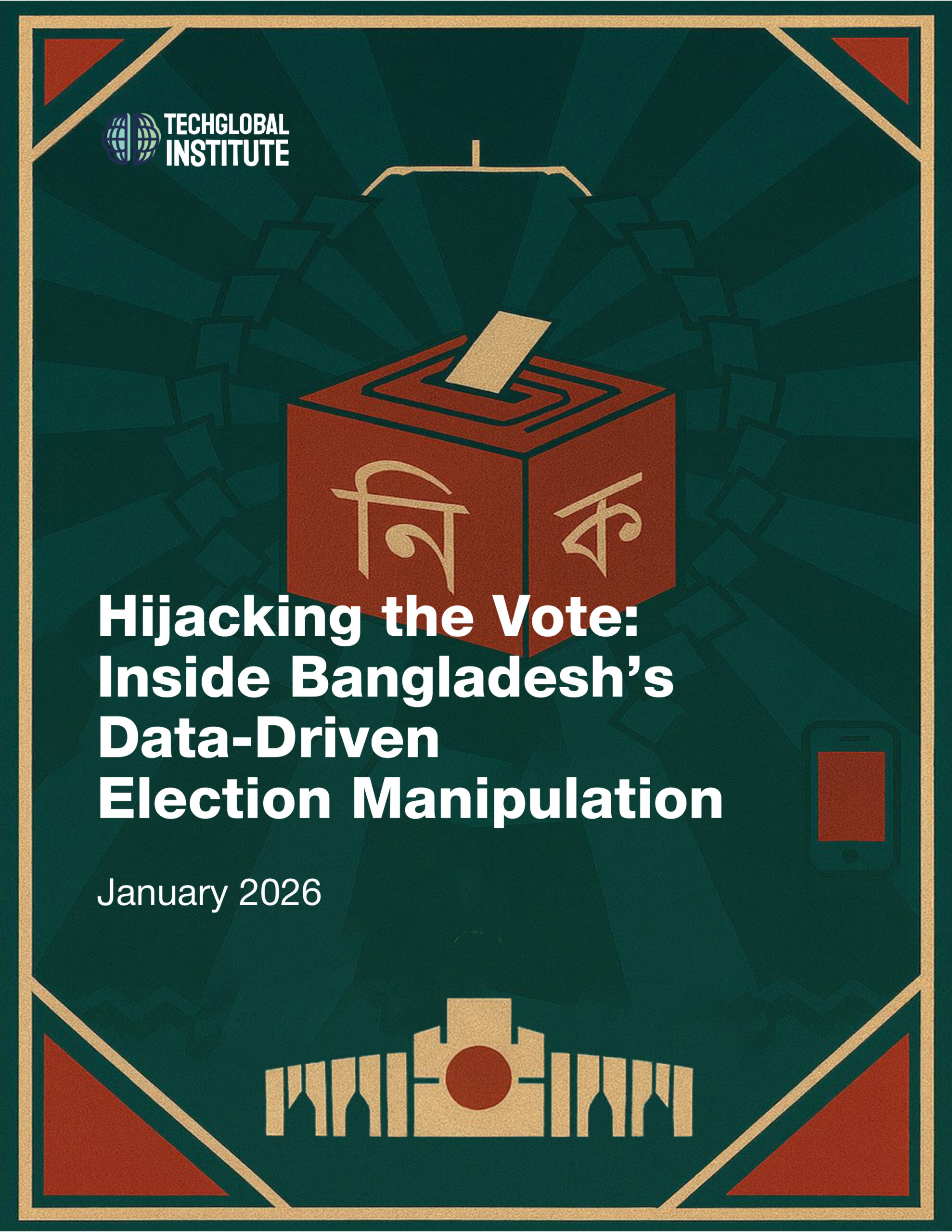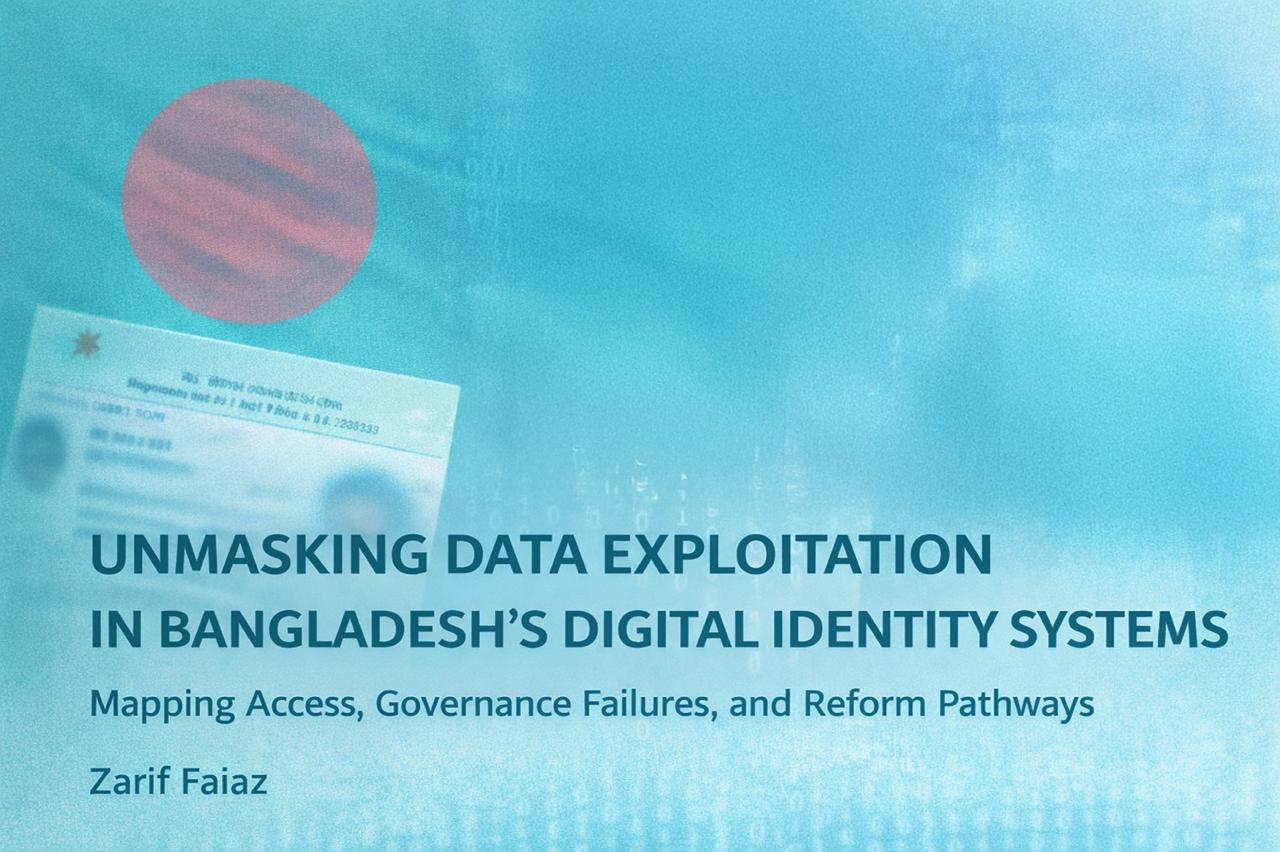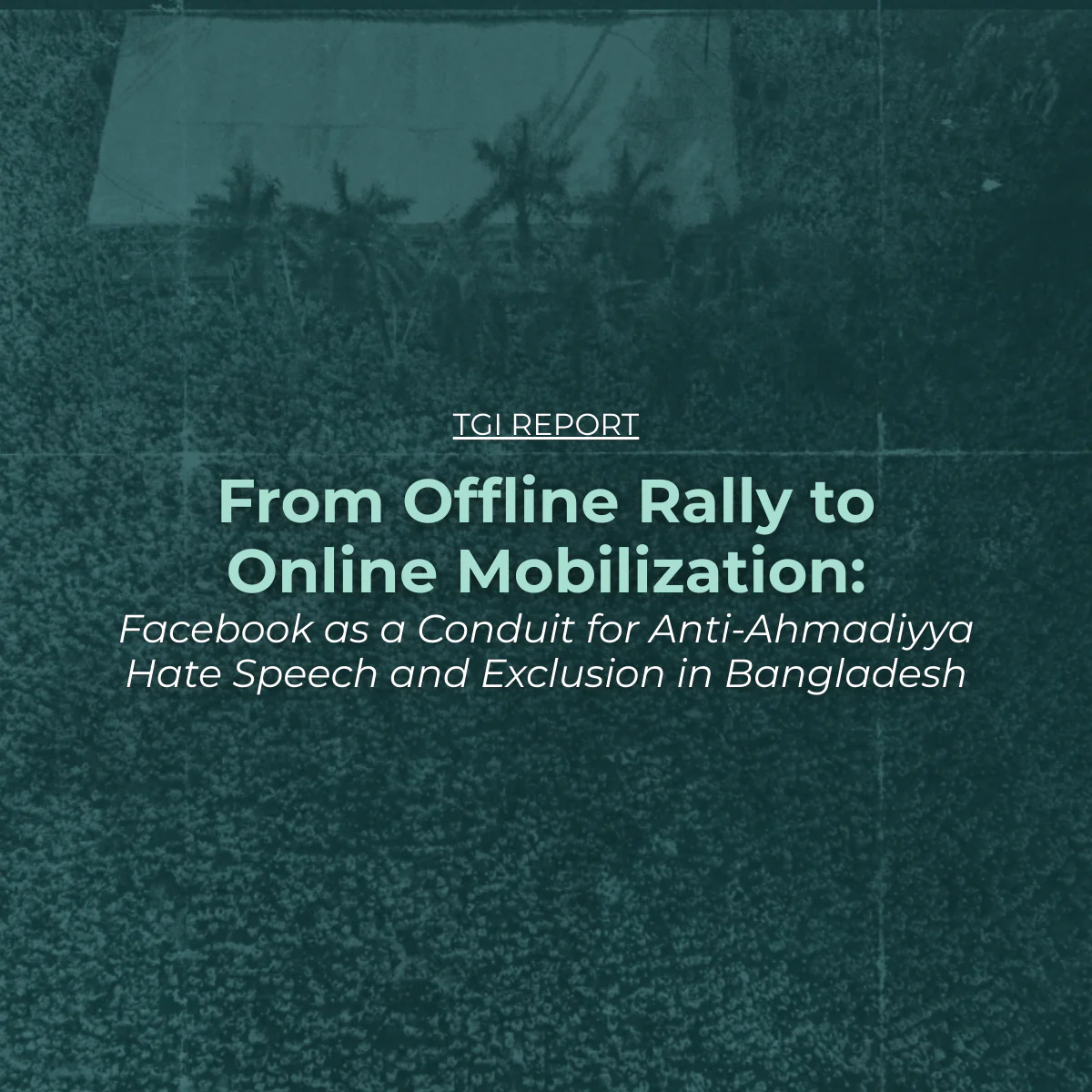A Critical Juncture for Digital Governance
Tech Global Institute (TGI) participated in the WSIS+20 High-Level Event in Geneva from July 7 to 11, 2025, a milestone convening to assess two decades of progress since the original World Summit on the Information Society (WSIS) and to help shape the path toward the upcoming UN General Assembly review in December 2025.
TGI’s positions going into the event were clear and grounded in sustained advocacy, as we consistently engage in ongoing public consultations on the WSIS+20 review through both institutional and coalition channels. In June 2025, in partnership with Global South allies through the Global Digital Justice Forum and the Global South Alliance, we mobilized support for a joint statement by Global South civil society organizations. The statement outlined shared priorities, calling for inclusive, transparent, and accountable digital governance. It emphasized the need for meaningful Global South representation and the adaptation of governance frameworks to respond to emerging challenges and align with public interest and development goals.
Through the Global Digital Rights Coalition, we also supported the Five-Point Plan for a transparent and accountable WSIS+20 review process that enables inclusive and equitable participation—particularly of underrepresented Global South stakeholders—through meaningful consultation and broad engagement. We also endorsed the Eight Practical Recommendations aimed at operationalizing this plan.
Recently, in our feedback on the WSIS +20 review Elements Paper due on 25 July 2025, we advocated for a digital governance framework that is human rights-based, gender-responsive, and grounded in international law. This framework should hold both states and tech companies accountable, address digital divides, and promote digital development taxes, inclusive financing, and community stewardship of data commons to ensure equitable and sustainable digital progress. We also strongly urge that the Zero Draft reaffirm the mandate of the IGF, including sustainable funding, and incorporate concrete mechanisms to integrate the GDC into the WSIS framework. We reinforced these recommendations during the Follow-up WSIS+20 Informal Stakeholder Consultation Session on July 29, 2025.
This sustained collaborative and independent effort enabled a constructive dialogue with the WSIS+20 co-facilitators, H.E. Ms. Suela Janina, Ambassador and Permanent Representative of Albania to the UN, and H.E. Mr. Ekitela Lokaale, Ambassador and Permanent Representative of Kenya to the UN. Their commitment to an inclusive review process remains one of the most encouraging aspects of WSIS+20. During the dedicated consultation at the High-Level Event, they welcomed input on representation gaps, implementation challenges, and the need for context-sensitive capacity-building. We value their openness and acknowledgement of civil society’s vital role in ensuring accountability throughout the WSIS process.
The themes we advocated for were echoed in multiple sessions throughout the High-Level Event, highlighting growing alignment between civil society and other stakeholders. Multiple sessions throughout the High-Level Event reflected some alignment with civil society positions. A key session titled “Bridging Visions: Aligning the GDC and WSIS+20 Overall Review by the UNGA” emphasized WSIS as the natural home for implementing the GDC. The session called for inclusive, tech-neutral digital governance that evolves with emerging issues like AI and evolving challenges, such as cybersecurity. In line with our joint statement and the Five-Point Plan, several voices called for reinforcing the IGF’s policy role.
As Kurtis Lindqvist, President and CEO of ICANN, noted: “The Internet Governance Forum (IGF) is one of the central global venues where the multistakeholder model is put into practice, alongside organizations like ICANN and standards bodies such as the Internet Engineering Task Force (IETF). It provides a neutral platform for governments, the private sector, civil society, and the technical community to engage on equal footing. The IGF plays a critical role in fostering dialogue, building understanding and shaping effective solutions that can inform action across institutions. It remains a space where multistakeholder cooperation is tested, refined and strengthened over time.
If that space is weakened or replaced by more state-centric models, we risk losing the coordination that allows the Internet to function as a single, global system.”
Elsewhere, at “Leaders TalkX: ICT Applications to Unlock the Full Potential of Digital Part II,” participants highlighted the importance of updating the WSIS Action Lines to reflect today’s digital realities. For instance, incorporating digital sustainability under e-environment and ensuring enabling environment better captures the diversity of internet users. Similarly, at the “Leaders TalkX: Local to Global: Preserving Culture and Language in a Digital Era” proposed practical measures—such as taxing big tech companies and requiring them to design tools that are inclusive and responsive to the needs of diverse user communities worldwide.
Complementing these discussions, the session “Revamping Decision-Making in Digital Governance and the WSIS Framework” emphasized the need to adapt existing structures to address new and evolving technological challenges. Speakers endorsed proposals to improve coordination among WSIS components, integrate Global Digital Compact (GDC) and Sustainable Development Goals (SDG) commitments, and strengthen the IGF through a permanent mandate, sustainable funding, and deeper engagement at the local level.
Despite many positive commitments and inclusive rhetoric at WSIS+20, too often, discussions risk becoming abstract without concrete actions to dismantle structural inequalities or challenge dominant tech monopolies. TGI, along with our Global South partners, continues to advocate for digital governance that is truly inclusive, rights-based, and accountable—ensuring that the voices of marginalized communities shape decisions and that policies lead to equitable and sustainable digital futures.
Alongside civil society voices, several Global South governments reaffirmed their commitment to the core principles of WSIS, emphasizing a human rights-based digital transformation. As H.E. Mr. Hubert Vargas Picado, Vice Minister of Science, Technology and Telecommunications in Costa Rica, aptly expressed: “Our vision for the future remains aligned with the principles of Geneva and Tunis: to digitally transform our networks, our institutions, and our society—with a human rights-based approach.”
As we approach the December 2025 UNGA review, the challenge is not just to preserve past commitments but to upgrade governance models to avoid replicating past inequities, building instead equitable, sustainable systems grounded in global solidarity. We reiterate the following priorities:
- WSIS’ people‑centered, rights‑based model must remain core, with the GDC integrated into its framework;
- The Internet Governance Forum should become a permanent, well‑funded institution with real mandate, coordination capacity, and grassroots linkage;
- Structural barriers must be removed so Global South civil society actors can equally shape digital policy;
- The review should update WSIS Action Lines to explicitly address emerging digital challenges;
- The digital future must reject monopolies and exploitation, protecting platform workers, fair competition, and reinvestment to communities;
- Digital governance must be linked explicitly to SDGs.



